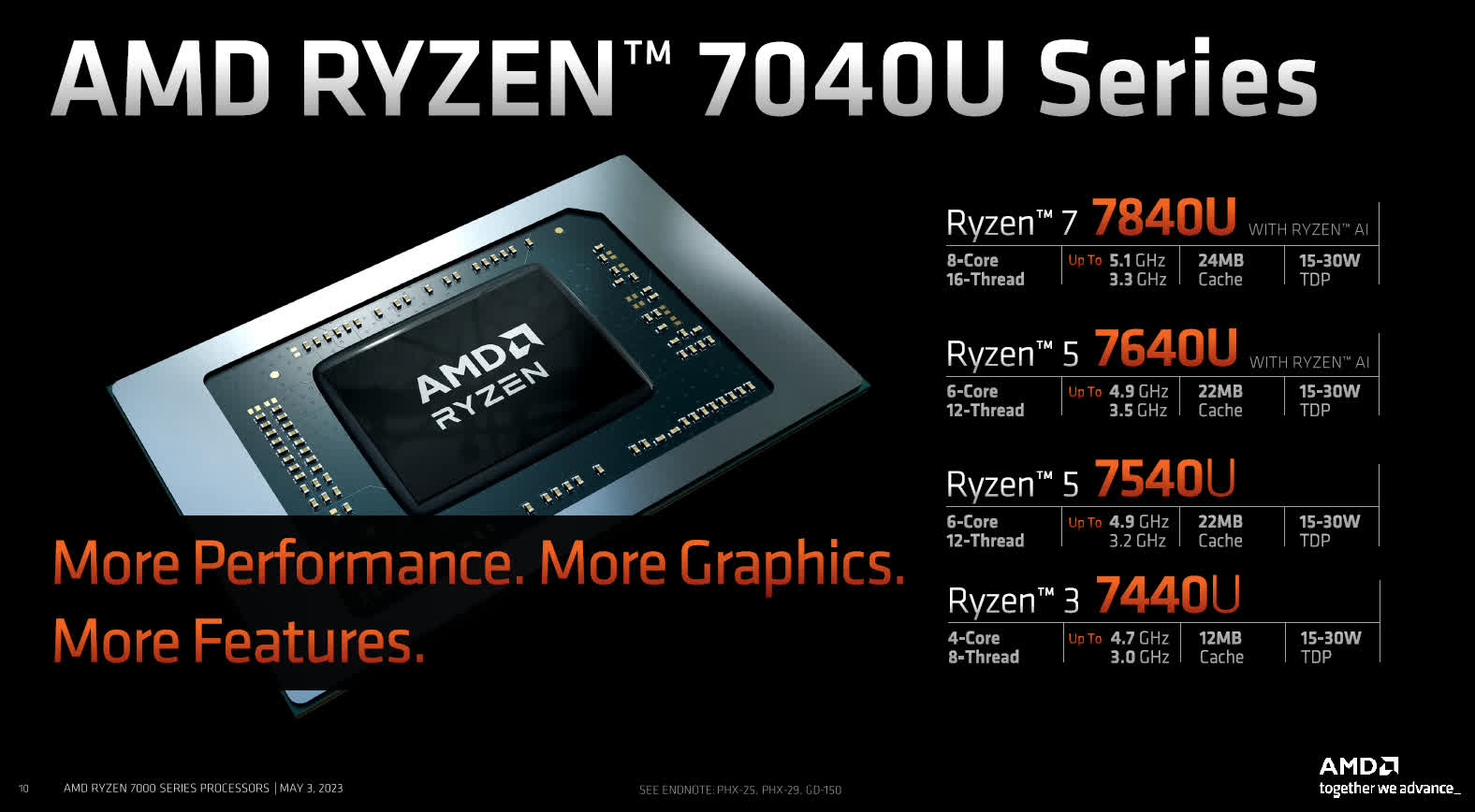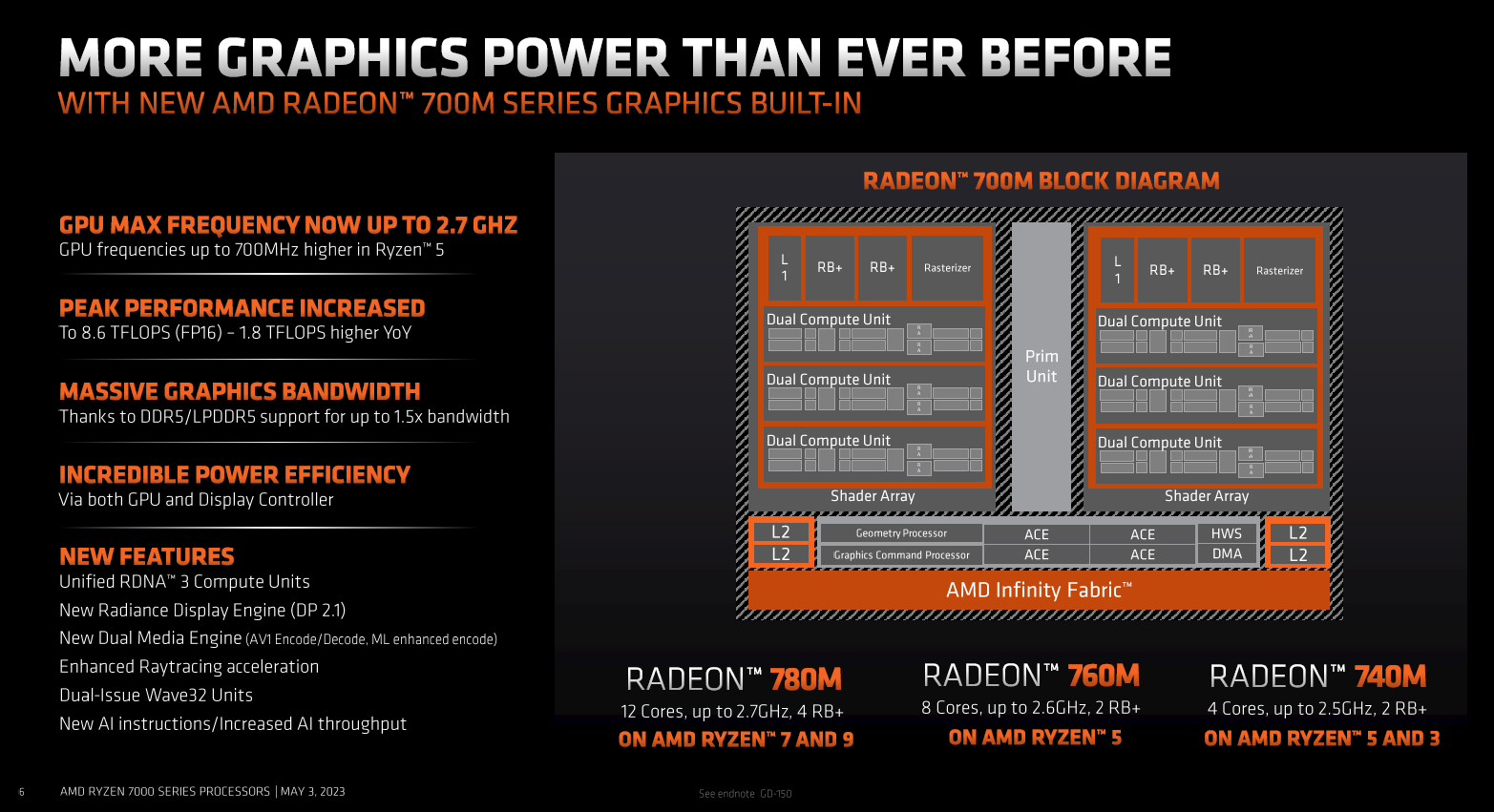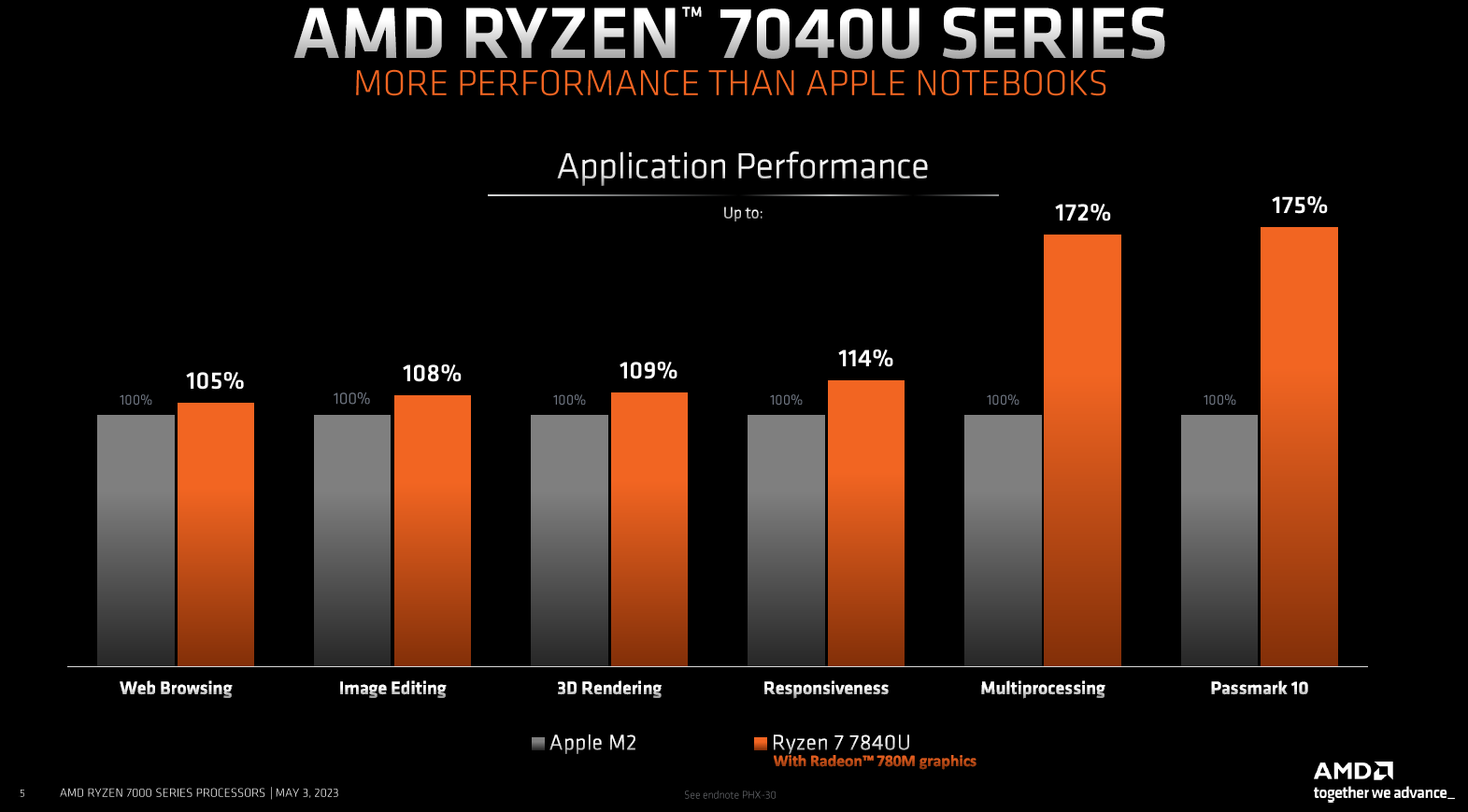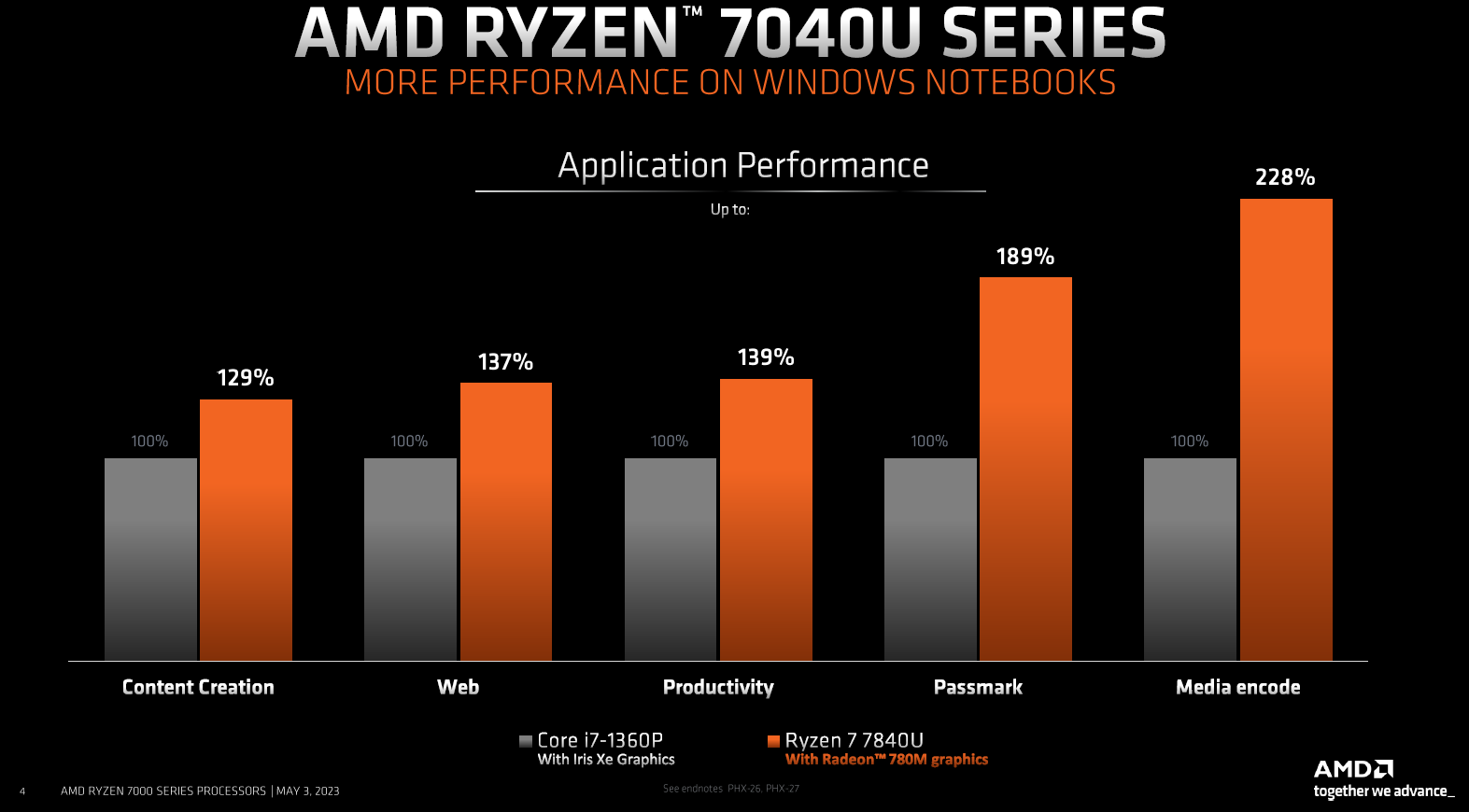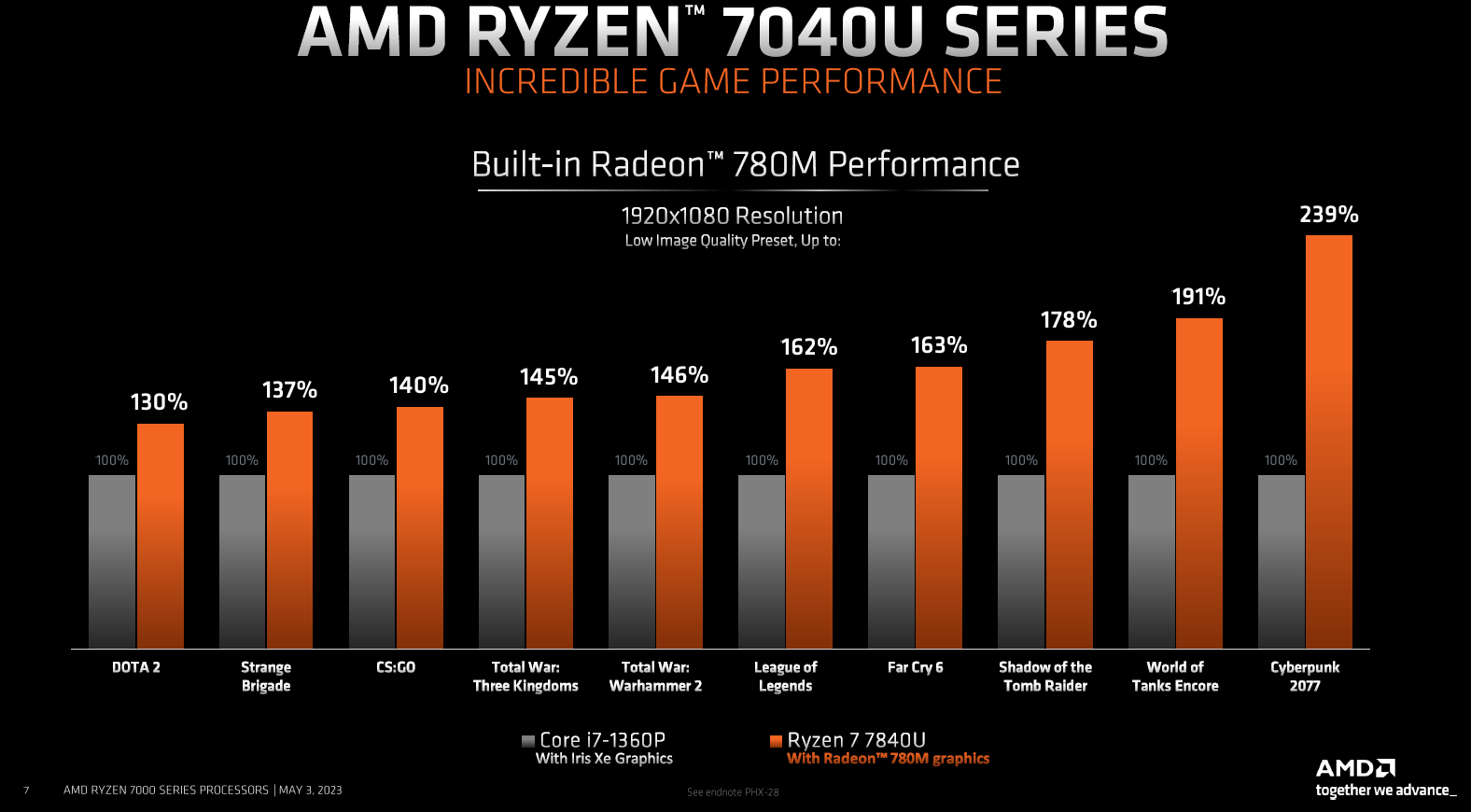In brief: We've known about the Ryzen 7040U series processors for months, but AMD has now offered more info on what to expect from these new mobile parts for highly-portable laptops. Interestingly, Team Red claims the flagship Ryzen 7 7840U outperforms both the Intel Core i7-1360P and the Apple M2 chipset, but we'll have to wait for independent reviews to see if this is true in real-world tests.
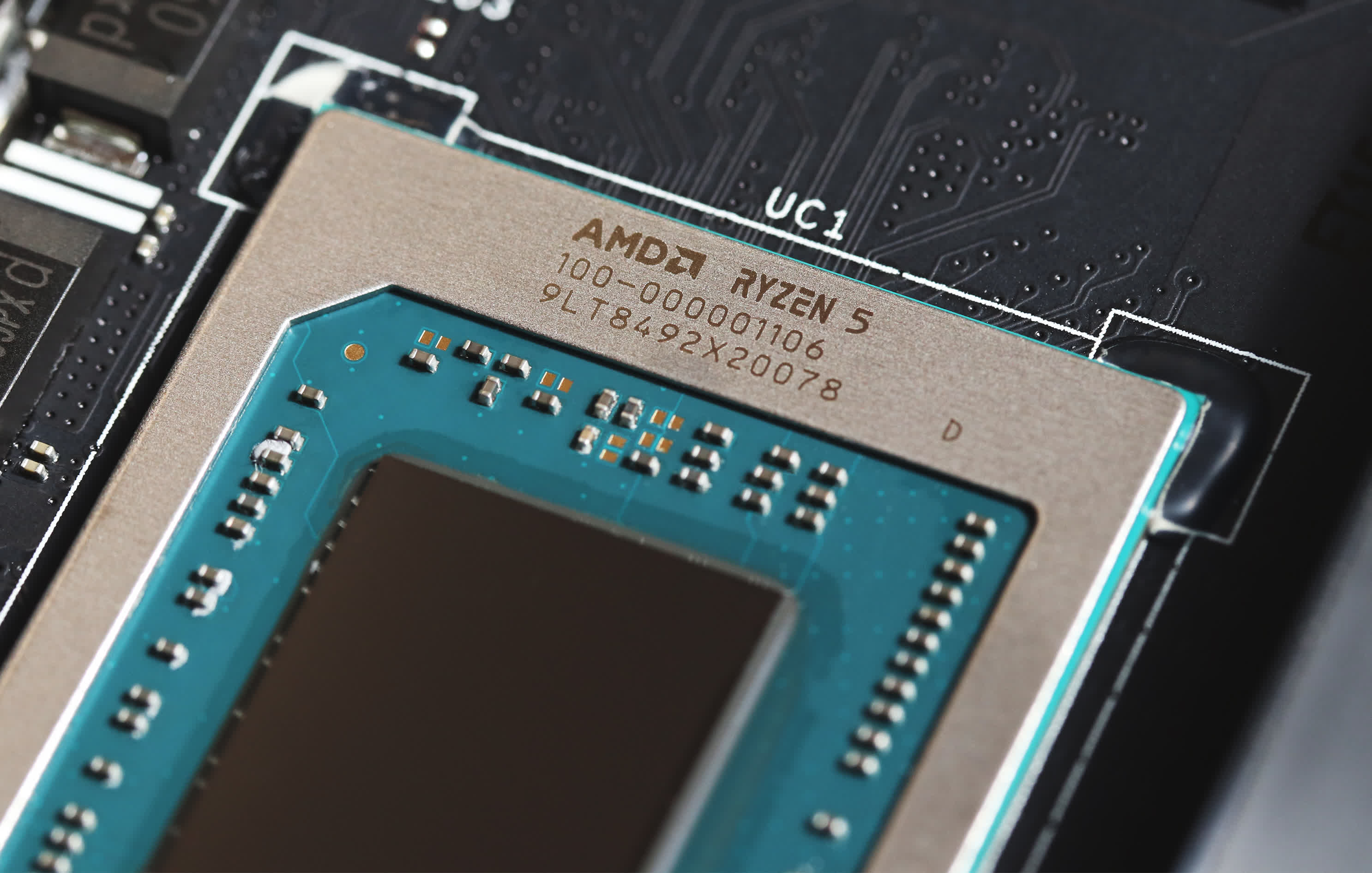
Back at CES in January, AMD offered a brief overview of its upcoming Ryzen 7040U series mobile processors. The new parts are based on Phoenix silicon manufactured using TSMC's 4 nm process node. But more importantly, they combine Zen 4 CPU cores with RDNA 3 graphics in a monolithic die, and we do know custom versions of these designs were used to create the Ryzen Z1 and Z1 Extreme for handheld game consoles.
The Ryzen 7040U series processors are meant for ultraportable laptops, so they have thermal design envelopes in the 15 to 30 W range – a slightly wider TDP window when compared to the previous Zen 3+ parts. Other specs range from four cores and eight threads with 12 megabytes of cache for the Ryzen 3 7440U to eight cores and 16 threads with 24 megabytes of cache on the flagship Ryzen 7 7840U part.
Boost clocks range from 4.7 GHz to 5.1 GHz – slightly higher than the Ryzen Mobile 6000U series which topped out at 4.7 GHz. There are three tiers of integrated graphics, with 4 RDNA 3 cores (Radeon 740M) on Ryzen 5 and 3 models, eight cores (Radeon 760M) on the Ryzen 5 7640U, and 12 cores (Radeon 780M) on the Ryzen 7 7840U.
We know the Radeon 780M iGPU has the potential to offer decent gaming performance at 1080p in many modern AAA titles, as seen in independent benchmarks of the Ryzen 9 7940HS APU. Of course, the power budget will be smaller with the Ryzen 7040U processors, though AMD's Ryzen Z1 benchmarks suggest that will still allow you to play demanding games like Far Cry 6 or Red Dead Redemption 2, albeit at a more modest frame rate.
AMD has also made use of its Xilinx acquisition with these new processors. Higher-end models like the Ryzen 7 7840U and Ryzen 5 7640U feature hardware acceleration for AI tasks using the XDNA architecture. Some of Intel's Raptor Lake CPUs also incorporate AI capabilities, as does the Qualcomm Snapdragon SQ3 chip in the Surface Pro 9. We're not sure most consumers are aware of them yet, but you can use these AI engines to improve video calls on Windows 11.
Interestingly, AMD claims the Ryzen 7840U can outperform Apple's new M2 chipset by up to 75 percent in various tasks, and we're assuming they mean the base version. Naturally, this sent the Apple press up in flames, especially since AMD's marketing slide offers a vague bar chart with little insight into comparative performance results for specific apps.
Furthermore, AMD makes no mention of performance-per-watt, which is the strong suit of Apple Silicon. Sure, the new AMD part might offer better performance, but people buying a thin and light laptop are more interested in knowing how long the battery will last before you need to look for the charger. As our own Tim Schiesser noted in his extensive analysis of the Apple M2, the chip isn't always the fastest in its class but handily beats Intel and AMD counterparts in terms of energy efficiency.
Moving back to the world of Windows laptops, AMD believes its new Ryzen 7040U series CPUs are also better than Team Blue's 13th-gen Raptor Lake-P processors. In the case of the Ryzen 7840U, the company claims it is up to 128 percent faster than the Core i7-1360P when it comes to productivity tasks. The list of apps used for testing includes Passmark 10, Mozilla Kraken, Blender, Cinebench R23, Handbrake, and the UL Procyon Office Productivity Benchmark.
It's a similar picture for gaming performance, with the Radeon 780M integrated GPU being anywhere between 30 to 139 percent faster than the Iris Xe GPU in the Core i7-1360P.
Of course, both Intel and AMD tend to cherry-pick the most favorable results to show off, so these figures offer only a general idea of what we can expect. Also worth noting is AMD tested the Ryzen 7840U paired with 16 gigabytes of RAM and a 1TB SSD using a reference board, while the Intel part was tested inside an actual laptop – the MSI Summit Flip 14, equipped with the same 1TB SSD and a more generous 32 gigabytes of RAM.
Speaking of real laptops, AMD tells us the Ryzen 7040U series processors will debut in several models from HP, Lenovo, Razer, and Acer in the coming weeks. We expect they'll make an appearance at Computex later this month.
Framework – the famous startup that produces modular laptops – now offers the Framework Laptop 13 it announced back in March with a choice between the Ryzen 7 7840U and the Ryzen 5 7640U (both offer XDNA-powered AI acceleration). You can pre-order it right now (starting price is $849), but it won't ship until July at the earliest.
https://www.techspot.com/news/98561-amd-details-ryzen-7040u-mobile-cpus-claims-7840u.html
